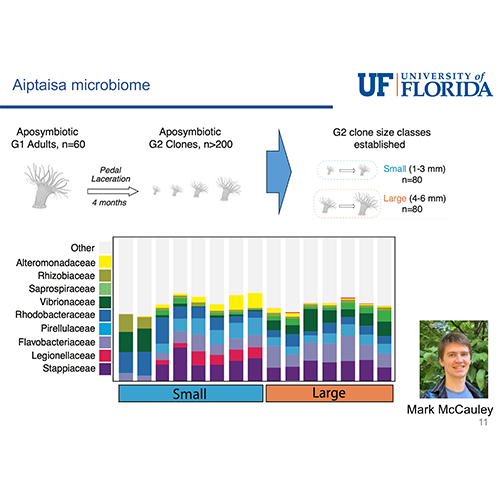
The Loesgen Lab published a new paper entitled “Manipulation of the Symbiodiniaceae microbiome confers multigenerational impacts on symbioses and reproductive ecology of its Exaiptasia diaphana host” in the flagship journal for the International Society for Microbial Ecology.
ABSTRACT
Many cnidarians, marine animals like corals, sea anemones, and jellyfish, host photosynthetic algae to form a healthy partnership. Global and local habitat changes, e.g. warmer coastal waters in Florida, have compromised this symbiosis in numerous species, resulting in devastating ecosystems effects including “coral bleaching” events.
Although the significance of the cnidarian-dinoflagellate interaction is well-established, both the animal and dinoflagellate algae have complex bacterial and fungal microbiomes and relatively little is known about the diversity of these communities or how they affect cnidarian physiology or cnidarian-dinoflagellate symbiosis.
They used the Floridian upside-down jellyfish Cassiopea xamachana, an emerging cnidarian model system, to describe cnidarian-associated microbial communities and use in vivo assays to determine the effects of microbes and microbial; compounds on cnidarian physiology. Their findings shine light on the microbiome of healthy Cnidarians and will aid in preservation efforts for these marine animals.
The full paper can be found at this link.
This project was supported by National Science Foundation grant NSF EF 2025476 awarded to Loesgen (PI), Weis (Co-PI), and Martindale (Co-PI).